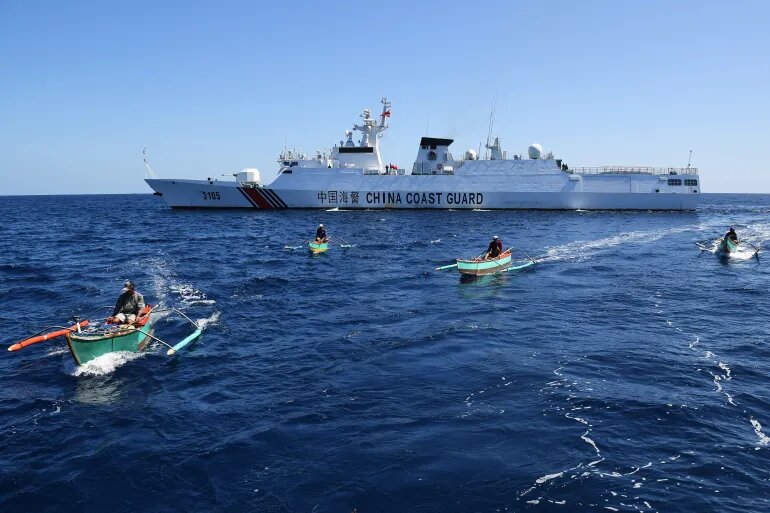China has introduced new maritime regulations permitting its coastguard to detain foreign vessels for allegedly trespassing in the disputed South China Sea, a move that has heightened tensions with neighboring countries, particularly the Philippines. These rules, effective from Saturday, allow the Chinese coastguard to detain foreigners “suspected of violating management of border entry and exit” for up to 60 days in complicated cases. This includes detaining foreign ships that have allegedly entered China’s territorial waters and adjacent areas illegally.
 China’s sweeping claim over almost the entire South China Sea has long been a point of contention, dismissing competing claims from several Southeast Asian nations, including the Philippines. A 2016 ruling by an arbitration tribunal in The Hague declared China’s claims had no legal basis, but China has ignored this ruling. Instead, China has militarized several reefs, turning them into artificial islands, and has deployed coastguard and other vessels to patrol these waters, leading to numerous confrontations with Philippine vessels.
China’s sweeping claim over almost the entire South China Sea has long been a point of contention, dismissing competing claims from several Southeast Asian nations, including the Philippines. A 2016 ruling by an arbitration tribunal in The Hague declared China’s claims had no legal basis, but China has ignored this ruling. Instead, China has militarized several reefs, turning them into artificial islands, and has deployed coastguard and other vessels to patrol these waters, leading to numerous confrontations with Philippine vessels.
Philippine President Ferdinand Marcos Jr. described China’s new regulations as a “very worrisome” escalation. In response, the Philippines’ Department of Foreign Affairs announced on Saturday that it has filed legal submissions to the United Nations in New York, asserting its maritime entitlements under UN rules. The Philippines refers to parts of the South China Sea as the West Philippine Sea, reinforcing its claim to an extended continental shelf in the area.
The Philippine government has accused the Chinese coastguard of “barbaric and inhumane behaviour,” citing multiple incidents where Chinese vessels used water cannons against Philippine boats. These confrontations have sometimes resulted in collisions, injuring Filipino soldiers.
Philippine military chief General Romeo Brawner stated that Manila is considering several measures to protect its fishermen and urged them to continue their activities within the country’s Exclusive Economic Zone (EEZ), disregarding Beijing’s new rules.
As the situation in the South China Sea remains tense, these developments could further strain relations and increase the risk of conflict in the region.